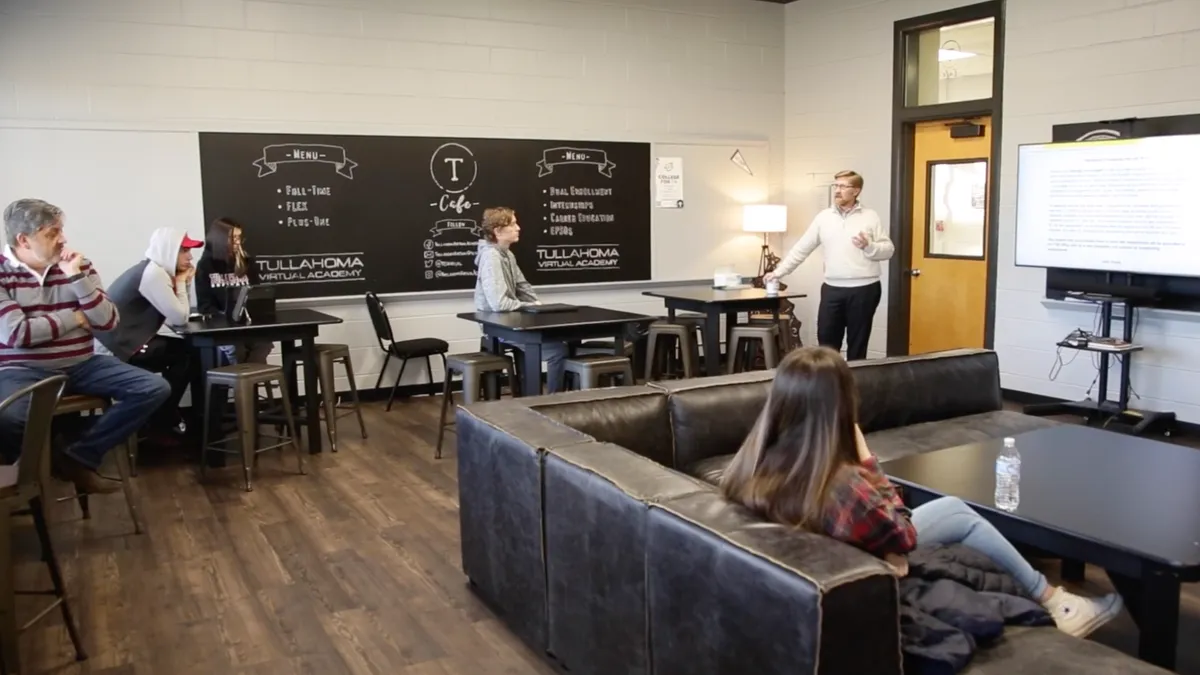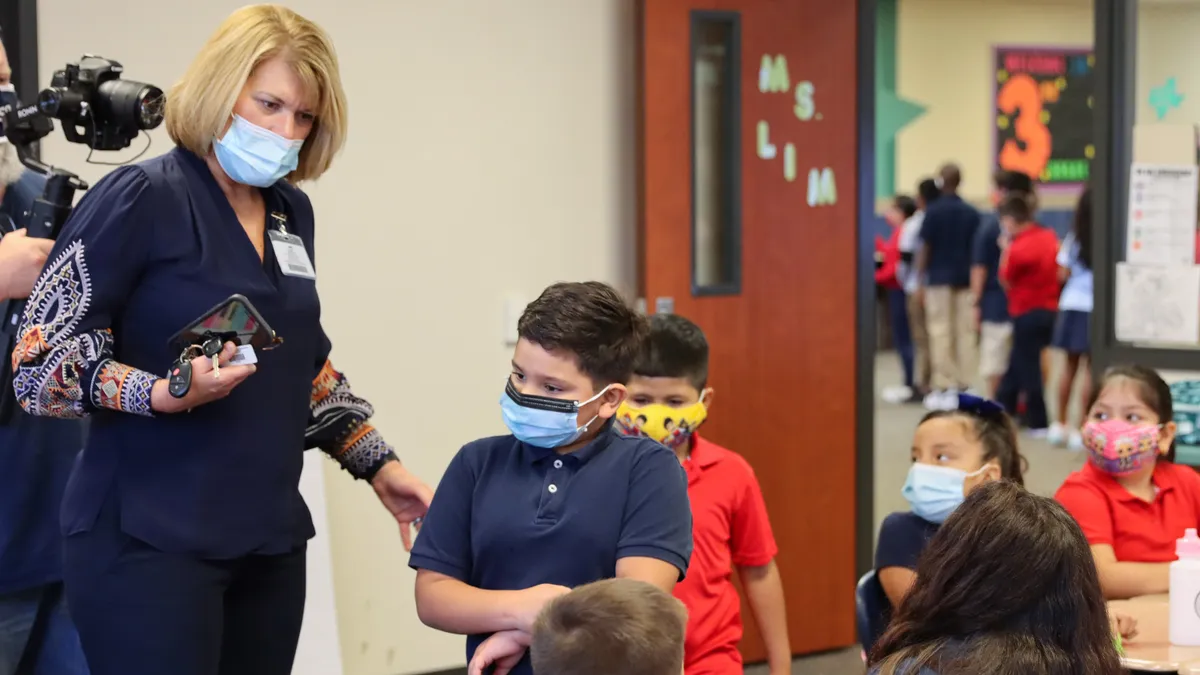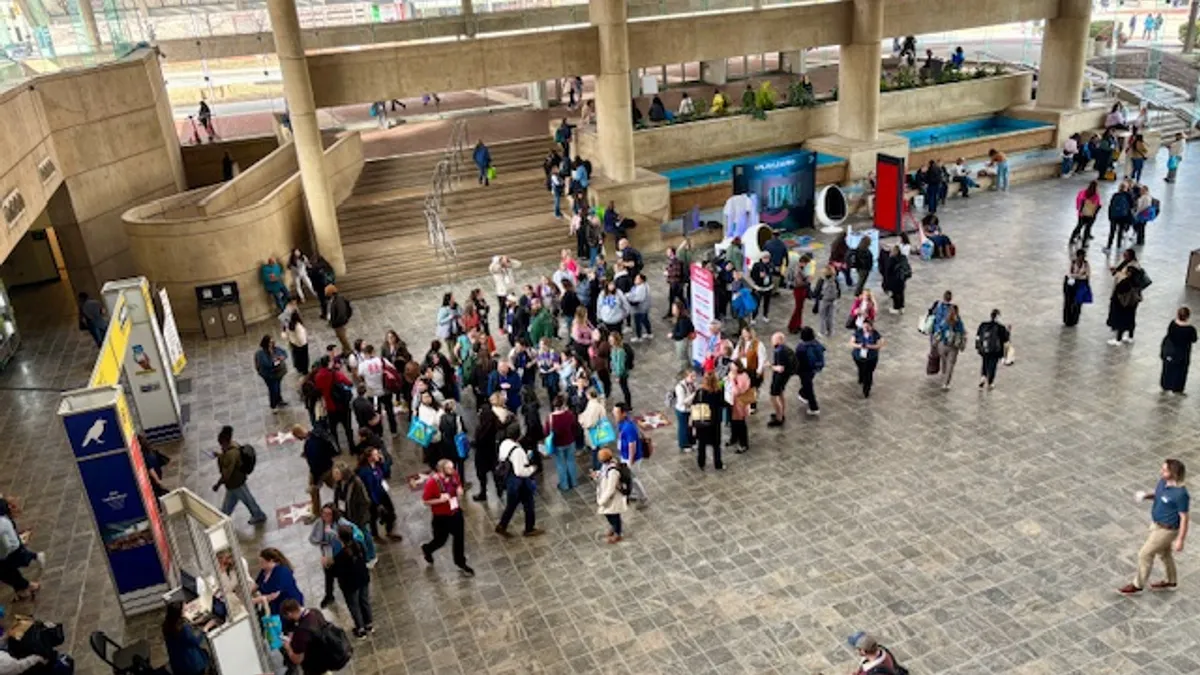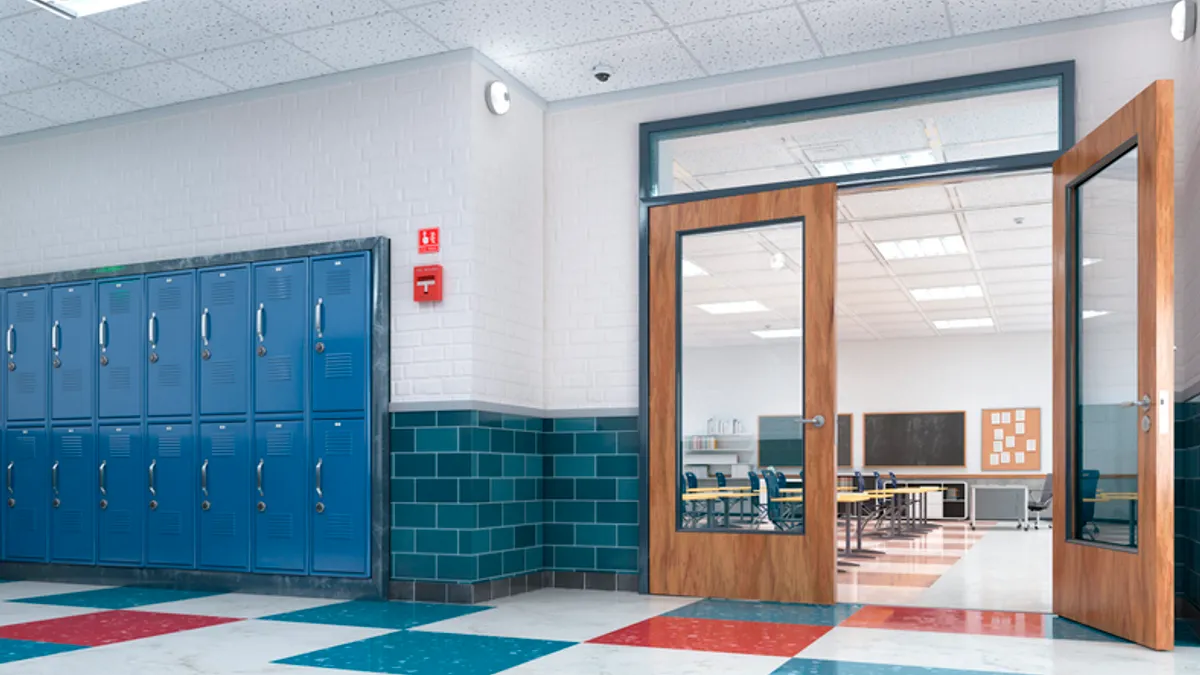A virtual high school launched to accommodate individual student needs during the COVID-19 pandemic in Tenneessee's Tullahoma City Schools has continued to grow in enrollment — and the district is expanding the program into middle school.
Some districts across the country are shutting down their virtual options due to budget constraints partly because of the closeout of K-12 federal pandemic emergency funding. Still, others like Tullahoma are putting more attention and resources toward their non-traditional online options.
"This is really about determining ‘How do students thrive in what setting is best for that child and their family?’ And we have an option for them that dovetails well to meet their needs and their family needs," said Tullahoma City Schools Superintendent Catherine Stephens. The rural school system, located near Arnold Air Force Base and the University of Tennessee Space Institute, has about 3,600 students in K-12.
"What we all realized is there are needs of students that the standard, typical, traditional setting just isn't successfully working for … and we have to think outside of the box."

Catherine Stephens
Superintendent of Tullahoma City Schools
The Tullahoma Virtual Academy opened in fall 2021 for grades 9-12. Its creation was fueled by community input and the school community's desire for learning alternatives that are flexible and open to all types of students — including those who are homeschooled, who have medical hardships, or who want to take courses that aren't available in-person.
Last school year, the district added 8th grade to the virtual academy, and 7th graders can participate starting this school year. The district's 5-year strategic plan calls for a virtual academy option for grades K-12 by 2026.
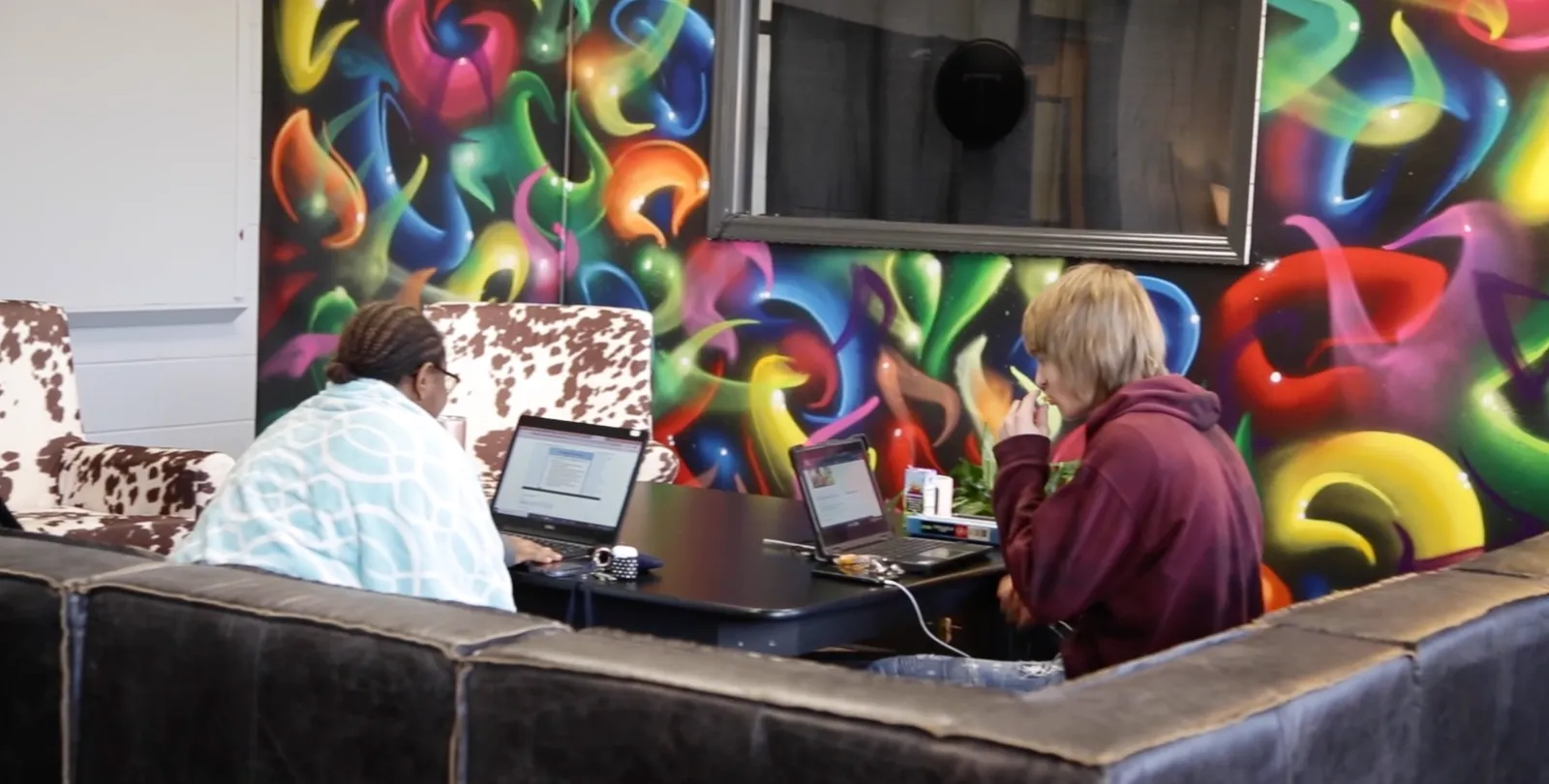
As the program grows, however, district leaders like Stephens and Tullahoma Virtual Academy Principal Chris Treadway say they want to ensure the online school prioritizes students' social and emotional wellbeing by helping them stay connected to the school community. Virtual academy students must earn a certain number of "social points" each grading quarter by visiting a district-sponsored cafe, attending a game or performance, going to a virtual academy potluck, and meeting with a district tutor in person.
"We just don't want them sitting at home doing nothing," Treadway said.
And while classes for the virtual academy are online, the school has its own cafe located in a district building that's used for offices and educational programs. At the cafe, students can print their school work, meet in small study groups, get coffee, store their lunch in a refrigerator, or just socialize on the couch.
Virtual students can also participate in school sports, clubs and visual and performing arts, with district and school leaders helping to coordinate transportation.
"The main driver was to support and serve our students in an innovative manner," Stephens said. "Because what we all realized is there are needs of students that the standard, typical, traditional setting just isn't successfully working for … and we have to think outside of the box."
Creative thinking and flexibility
In a commitment to flexibility, Tullahoma students in grades 9-12 can attend a traditional school but still take up to four classes offered by the virtual academy each school year. That’s because those students — referred to as "flex" students — are taking 50% or more of their classes in person at the district's traditional high school.
Likewise, virtual academy students can take up to four in-person classes per school year at the district's high school. They are also known as flex students. Middle school virtual academy students can join in-person fine or performing arts classes.
"We exist for kids and families and so that they can be the best they can be. That's our goal, period."

Chris Treadway
Principal of Tullahoma Virtual Academy
The virtual academy courses were created and are monitored by teachers in the district, Stephens said. Teachers from inside and outside the district receive a stipend to teach the virtual classes. The virtual academy also has two full-time teachers and one graduation and career coach.
There are 20 students in 7th and 8th grades enrolled full-time in the virtual academy this school year, and their classes are conducted online with a live instructor and with everyone's video camera turned on.
There are 265 "flex" high school students and 50 full-time virtual academy high schoolers, said Treadway. The high school virtual classes are all asynchronous. Attendance for full-time and flex students is based on their completed coursework from the previous week.
The virtual academy format allows the district to customize learning based on each student's needs, said Stephens, adding the district also makes course and attendance decisions within state and federal compliance rules.
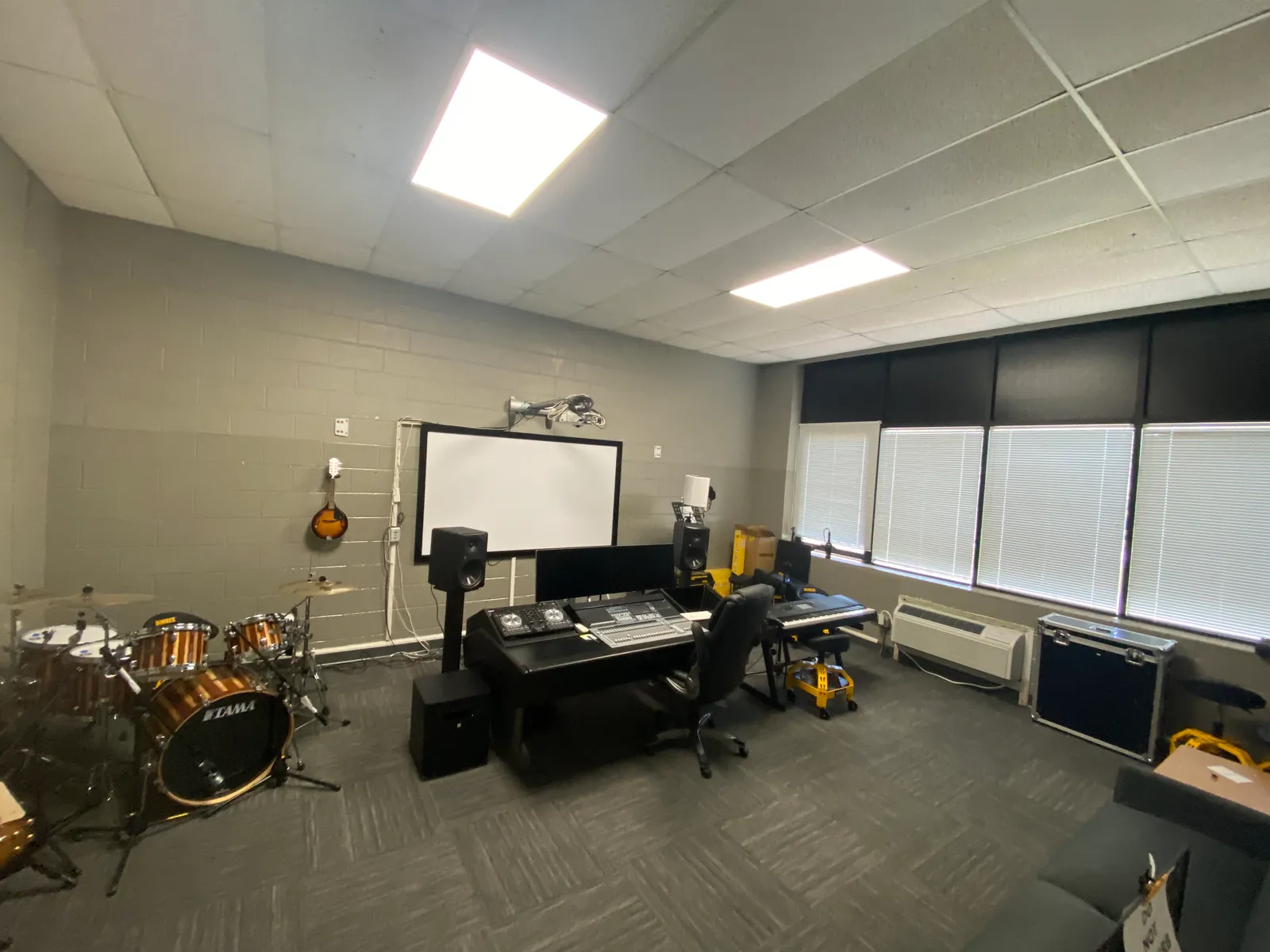
While the full-time virtual academy model won't appeal or even work well for every student, Treadway said all students have "a pretty good high probability that somewhere between 7th grade and graduating from Tullahoma City Schools that you're going to participate in some capacity with the virtual academy."
At the same time, there are situations when students benefit from the in-person instruction. He said one virtual academy student who struggled in an online Algebra II class found better success by transferring to the in-person class.
"We exist for kids and families and so that they can be the best they can be. That's our goal, period," Treadway said.
The district's administrators acknowledge that nationally, some families became weary of online learning due to COVID-19's forced remote learning when school buildings were closed. Recent research from the University of Notre Dame found that remote learning in the early years of the pandemic was to blame for increased absenteeism in the school year following widespread online learning in the 2020-21 school year, particularly in school districts with higher levels of poverty.
As such, Tullahoma City Schools has developed messaging to explain to community members how the virtual academy operates, including the benefits and challenges.
There is also intentional messaging to students letting them know the options they have, such as an American Sign Language course through the virtual academy. The virtual academy will also launch a recording industry course — along with a recording studio — in spring 2025.
"We really got the word out and engaged people in the thinking and the understanding," said Stephens, who added she still includes explanations of the virtual academy when she speaks to community groups, because some people are still unfamiliar with the school.
Correction: In a previous version of this article, the title of an educator was misidentified. The correct title is graduation and career coach.



